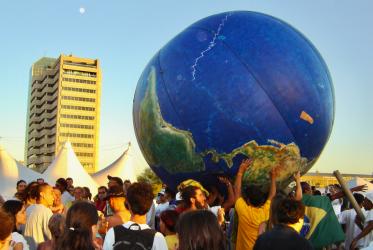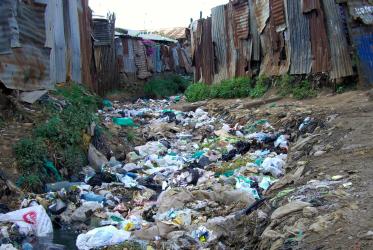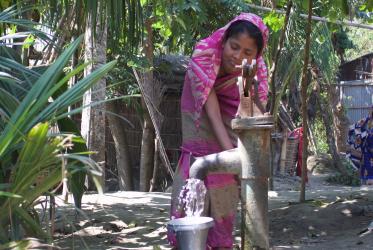Displaying 1 - 15 of 15
09 February 2024
Climate crisis fuels existing water injustice
27 October 2021
On World Toilet Day, sanitation is “an issue of justice”
16 November 2020
New WCC “Eco Ambassadors” pledge to protect our ecology
06 January 2020
Eco-School promotes blue communities, green churches
19 November 2019
WCC Eco-School begins in Thailand
07 November 2019
During Lent, a “carbon fast” can honour God’s creation
09 February 2017
WCC Executive Committee issues statement on climate justice
25 November 2016










